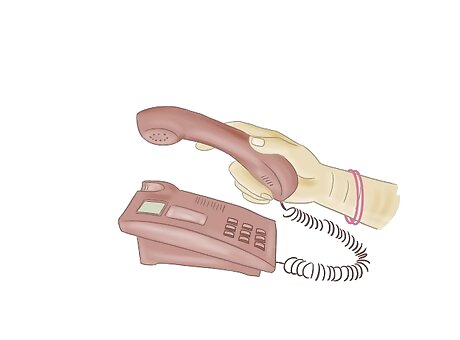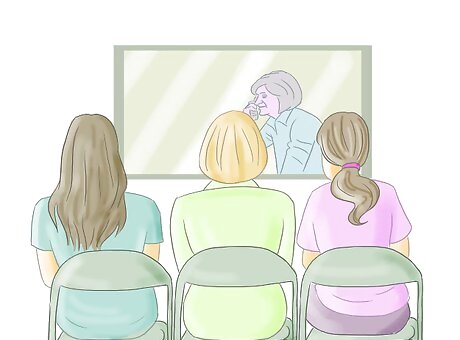
views
Pinpointing Needed Improvements

Start by using insight. When you make a call yourself, what are the things that really annoy you? It might be people who have little product or technical knowledge when that's precisely what you're calling for. You may be annoyed by people who use particular terms, slang or sounds (such as a drawn out "ummmm" noise), sounds that tend to imply they're not that interested in talking to you. Consider these "annoyances" and write them all down. Evaluate yourself in a training context; if you have phone handling issues, it is not recommended that you train others, but that, instead, you attend the training yourself and then test the improvements.

Start by training your team member from the beginning of a call. The greeting and the speed that the phone is picked up can determine the customer's overall impression of the experience. In many cases, if the phone rings more than three times, it is too long; for the caller, boredom starts to set in. On the other hand, people who pick up almost instantly may startle the caller. Try to find a middle ground such as picking up after the first ring, but before the second. Consider the greeting. Many people find a greeting such as "Hi, this is Jack speaking" subtly annoying, as they assume the person's name is really "Jack Speaking", or that such an automated, informal response is suggestive of someone who is not able to help them sort out a problem. A simple improvement is "Hi, this is Jack, how can I help you?"

Consider the tone and speed of your voice. Again, consider what things really annoy you--it might be speaking too fast, too slowly, in a very loud or quiet voice, or someone who places too much emphasis on certain tones (such voices that may be described as too "bubbly" or "bouncy"), or tones that are very flat, which suggest disinterest in the caller (always a risky thing in a service center). Find out if your staff members exhibit any of these traits by listening to their calls. You might also find almost-automated responses infuriating, as though you're talking to someone who is clearly reading from a prompt screen, like a zombie.

Consider the middle and end of the call--both the middle and end are crucial. Many perfectly good calls have been ruined by a bad ending, much like an excellent meal ruined by poor service at the cashier's desk when leaving--just one small thing that is wrong anywhere along the course of the meal can cause disappointment with regards to the whole event. A near-automated "Have a nice day" finale can turn people off with regards to having anything to do with your company, because if the words lack sincerity it implies the customer service contact likewise has no sincerity. Also, consider the overall length of the call. If your office usually has in-depth and complex queries that take a while on the phone to sort out, then adequate time should be given to the client. At the other end of the spectrum, rushing a call or limiting call time can make the other person feel like they aren't important, whereas making the call much longer than necessary can also become an issue. Train for quality over quantity. Employee knowledge of their industry and product is important in the role your office plays as a consultant.

Ensure that the people who are on the phone actually know what they're talking about. This may mean that additional product or technical knowledge training is required, or making it clear when it is appropriate to recommend referral of the caller to someone who can help as soon as possible. For individual cases, actually call the employee you want to talk to. Quite often you can find out very quickly what could be a cause for concern, as this person may have a wonderful social manner face to face, but be rather unpleasant on the phone.
Using Training Supports

Look into using DVD or video training programs. Another alternative is to use similar one-to-one or group courses. It's actually useful to pair people up and role play for the purpose of letting people develop their own insight. As they review the manner in which they make the role-play calls, they may become more aware of their own phone mannerisms and how to self-improve. Avoid the "training recordings" as a learning method. It's quite an old fashioned method to record and replay phone calls for training sessions, while everyone listens to a coworker on a call. This can backfire as no one knows if their calls are being listened to "Big Brother" style and it may put them on edge, especially when a caller is being particularly confrontational, or the phone handler is having a bad day that may be unusual.

Send your staff members for elocution or drama/theatrical lessons if they're working in a high-profile office. This is also an excellent trick for smaller companies as well. The caller can be encouraged to imagine a person at the other end as someone who is likely wearing a suit in a huge office, but who in reality is sitting in an informal small-business office, or at the opposite end of the spectrum, operating from a large, busy corporate call center. Stage techniques are surprisingly influential and can help a person express themselves more clearly and confidently. A good example is the frequently suggested technique of smiling when you pick up the phone, but it works the other way, too; it's detectable to clients when the person at the other end is trying to sound happy and helpful, but isn't really--it's like grinning through your teeth, or hiding your misery, it still comes through. It's best to relax the face and throat (something that is taught in drama classes) to be able to speak more naturally and pleasantly. A gentle smile is fine, especially when it is sincere and reaches not just your face, but also your eyes.

Do phone role plays. Go through the calls from greeting to closure, and experiment with different types of user personalities, allowing your analysts to respond in the moment. Once completed, take the time to discuss the ways it could have been handled differently afterwards. This is both a fun and effective way to check that the training is working.


















Comments
0 comment